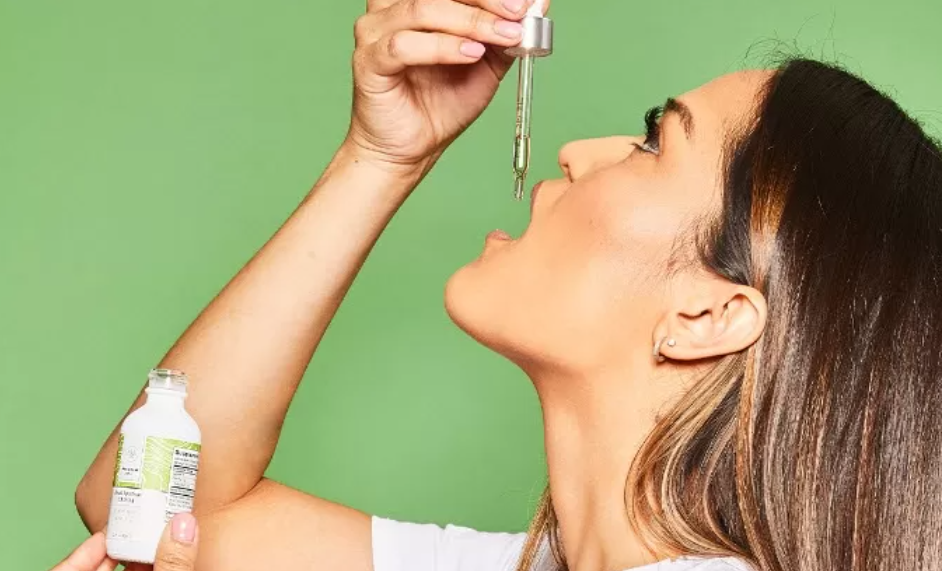Lifestyle
Why are People Ignoring the Benefits of CBD and Cannabis and Looking at It Like a Drug from the Past?

Are people not using CBD and cannabis due to a long history about the War on Drugs?
Governments worldwide have been under pressure from the cannabis and the medical community to overhaul cannabis laws for decades. We’ve seen some results in recent years, but people still see it as a drug rather than what it truly is; an over-the-counter health supplement.
Nevertheless, the benefits of CBD are still amazing and can’t be denied. Let’s dive into the myths and health benefits circulating CBD and cannabis in general.
Myths About CBD That Need Busting
Thanks to the bad reputation of its brother cannabinoid, tetrahydrocannabinol or THC, myths about CBD and cannabis have spread worldwide. However, researchers have been studying CBD for many, many years, and several results show the benefit of CBD.
There’s a lot of confusion around what CBD (cannabidiol) is and what it can do for you. The conflation of cannabis/hemp and its derivatives between the medical community and consumers also contributes to the confusion.
Let’s look at some of the CBD myths to decipher the reality.
CBD Makes You High (No, It Does Not!)
Since CBD gives you a sense of light-headiness and peace of mind, people have considered it a psychoactive drug. CBD comes from a family of plants, cannabis, with psychoactive cannabinoids. The most commonly known one is THC which you can find in larger doses in marijuana.
You might have heard people using the term marijuana in place of cannabis. However, they are not the same. Marijuana and hemp are part of the cannabis family. The core difference between the two lies in the concentration of psychoactive compounds.
Notably, CBD comes from hemp plants, which have minimal concentrations of delta-9 THC. Contrary to that, marijuana contains high levels of delta-9 THC and low levels of CBD. Therefore, the use of pot gives you a euphoric high, but consuming CBD products does not make you psychoactive.
Out of more than 100 cannabinoids of the cannabis plant, cannabidiol (CBD) and delta-9 tetrahydrocannabinol (THC) are the most popular. However, THC is far more notorious, and many believe all cannabis derivatives have the same psychoactive effects.
CBD Is a Schedule 1 Narcotic and Therefore Has Not Been Researched On
The fallacy has two parts. The first half concerns the research in the United States and the other concerns “no research has been done.”
There is no doubt that cannabis falls under the Schedule 1 drug class. Therefore, there has been limited research on CBD. Still, US universities have contributed to research done so far with the government’s permission.
Then there is another misleading point about CBD that is not at all researched, which is false. Besides the United States, several countries have researched cannabis plants and the significance of CBD. Also, the government of the United States funds many of those studies.
CBD Has No Side Effects (It Can Interact With Certain Medications)
Generally, CBD enthusiasts consider this cannabinoid to be pure from any adverse reactions. However, certain medications in your system while using CBD products can trigger an adverse reaction.
CBD impacts the way your body processes, absorbs and excretes certain medications. Due to this, there can be an alteration in that drug’s therapeutic benefits and blood levels. Therefore, you should always seek professional advice before taking CBD if you have any treatments soon or are currently on medication.
CBD Is of No Use (Untrue, It Has Active Ingredients)
The human body produces endocannabinoids that work similarly to cannabinoids in cannabis. Everyone’s immune systems have many endocannabinoid receptors that function to naturally treat various health problems.
The active ingredients in the CBD products available on the market attach to your body’s endocannabinoid receptors. This results in producing the same benefits that your natural endocannabinoids show.
Health Benefits of CBD and Cannabis That You May Not Know
Over the years, scientists have worked hard to outline the benefits of CBD along with its complications. Multiple studies have shown that CBD has the potential to treat various illnesses or at least reduce symptoms. Some of the diseases that may be treatable with CBD are as below.
Chronic Pain
Chronic pain is one of the leading illnesses for which people use CBD oil, and science has proved its efficacy. CBD in cannabis has active ingredients that bind to your body’s endocannabinoid receptors.
These receptors are present in various parts of your body and function to relieve pain. So, when CBD binds to the same receptors in your body, it may relieve chronic pain.
Drug Addiction and Alcoholism
A comprehensive review of CBD benefits has revealed that using cannabis may help people with opioid or alcohol dependencies. However, another study suggests that cannabis is an abusable substance that drives the risk of dependency and addiction.
It all depends on how and how much CBD or cannabis you consume. However, people who have been using cannabis since an early age have more risks of developing a problem. This doesn’t apply to CBD, though, since it does not have any addictive properties.
Cancer
The use of oral cannabinoids is effective in treating vomiting and nausea, which is a byproduct of chemotherapy. Several studies have shown that smoking cannabis may come in handy in alleviating these symptoms of cancer treatment.
Oher research on cancer cells suggests that cannabinoids may affect some types of cancer by slowing growth or killing the cancerous cells.
Epilepsy
In June 2018, the Food and Drug Administration (FDA) legalized the consumption of medicine containing cannabidiol (CBD). The FDA approved the medication for treating two specific, severe, and rare types of epilepsy: Lennox-Gastaut syndrome and Dravet syndrome.
Both of these conditions are difficult to treat and control with other medications. Therefore, the FDA approved a CBD-containing drug called Epidiolex. This drug contains the purified concentration of CBD after reviewing its benefits in research and findings.
A study published in 2017 showed that the use of Epidiolex resulted in far fewer seizures in children with Dravet syndrome.
Cannabis and CBD: Good or Bad?
Just like other substances, consuming CBD and cannabis has two sides. Your intention and the way of consumption decide whether these plants are a boon or a bane for your health.
Despite all the fuss around cannabis, there are scientific findings backing the cannabinoids present in hemp. CBD has the potential to be an effective medical treatment for many ailments, including cancer, epilepsy, and multiple sclerosis.
Since CBD can treat your body well in fighting different diseases, more and more people are inclined toward its use. Out of all the products, CBD oil has gained much appreciation. So, if you, too, want to yield the health benefits of this beneficial cannabinoid, check out this CBD oil for sale to start your journey right.
Business
Alabama to make another attempt Dec. 1 to award medical cannabis licenses

Alabama regulators are targeting Dec. 1 to award the first batch of medical cannabis business licenses after the agency’s first two attempts were scrapped because of scoring errors and litigation.
The first licenses will be awarded to individual cultivators, delivery providers, processors, dispensaries and state testing labs, according to the Alabama Medical Cannabis Commission (AMCC).
Then, on Dec. 12, the AMCC will award licenses for vertically integrated operations, a designation set primarily for multistate operators.
Licenses are expected to be handed out 28 days after they have been awarded, so MMJ production could begin in early January, according to the Alabama Daily News.
That means MMJ products could be available for patients around early March, an AMCC spokesperson told the media outlet.
Regulators initially awarded 21 business licenses in June, only to void them after applicants alleged inconsistencies with how the applications were scored.
Then, in August, the state awarded 24 different licenses – 19 went to June recipients – only to reverse themselves again and scratch those licenses after spurned applicants filed lawsuits.
A state judge dismissed a lawsuit filed by Chicago-based MSO Verano Holdings Corp., but another lawsuit is pending.
Source: https://mjbizdaily.com/alabama-plans-to-award-medical-cannabis-licenses-dec-1/
Business
Pot Odor Does Not Justify Probable Cause for Vehicle Searches, Minnesota Court Affirms

The Minnesota Supreme Court affirmed that cannabis odor does not constitute probable cause to search a vehicle.
If Minnesota police search a vehicle solely based upon the smell of pot, they can’t justify searching a vehicle, even if there is evidence found of other alleged crimes. Even after appealing a lower court decision to suppress the evidence—twice—the Minnesota Supreme Court agreed, and the dismissal of his charges stands.
In a ruling filed regarding a case the State of Minnesota Court of Appeals on Sept. 13, the Minnesota Supreme Court affirmed that cannabis odor does not constitute probable cause to search a vehicle.
The case has been ongoing for two years. On July 5, 2021, just before 10 p.m., a Litchfield police officer stopped a car for an obscure local law: the light bar mounted on the vehicle’s grill had more auxiliary driving lights than are permitted under Minnesota law. The officer asked the driver, Adam Lloyd Torgerson, for his license and registration. Torgerson, his wife, and his child were present in the vehicle. The officer stated that he smelled pot and asked Torgerson if there was any reason for the odor, which he initially denied. But cops found a lot more than just pot.
A backup officer was called in. The couple denied possessing any pot, but Torgerson admitted to smoking weed in the past. The second officer stated that the weed odor gave them probable cause to search the vehicle and ordered them to exit the vehicle. The first officer searched the vehicle and found a film canister, three pipes, and a small plastic bag in the center console. The plastic bag contained a white powder and the film canister contained meth, which was confirmed in a field test.
Torgenson was charged with possession of meth pipe in the presence of a minor and fifth-degree possession of a controlled substance after the unwarranted search of Torgerson’s vehicle.
Police Aren’t Allowed to Do That, Multiple Courts Rule
But the search had one major problem—cops weren’t searching for a meth pipe. They only searched his car because they could smell pot, and the meth and paraphernalia were a surprise for everyone. Still, they had no grounds to search the vehicle. The man’s charges were later dismissed after the district court determined the odor of cannabis alone was insufficient basis for probable cause to search the vehicle, regardless of whatever other drug paraphernalia they found.
The state appealed the case, but the Minnesota Court of Appeals affirmed the district court’s decision. The case was appealed a second time, this time to the Minnesota Supreme Court, which agreed with the lower court’s ruling.
“This search was justified only by the odor of marijuana emanating from the vehicle,” the Minnesota Supreme Court decision reads. “Torgerson moved to suppress the evidence found during the search, arguing that the odor of marijuana, alone, is insufficient to create the requisite probable cause to search a vehicle under the automobile exception to the warrant requirement. The district court granted Torgerson’s motion, suppressed the evidence, and dismissed the complaint. The State appealed. The court of appeals affirmed the district court’s suppression order. Because we conclude that the odor of marijuana emanating from a vehicle, alone, is insufficient to create the requisite probable cause to search a vehicle under the automobile exception to the warrant requirement, we affirm.”
It amounts to basic human rights that apply—regardless of whether or not a person is addicted to drugs.
Other States do Precisely the Same Regarding Pot Odor as Probably Cause
An Illinois judge ruled in 2021 that the odor of cannabis is not sufficient grounds for police to search a vehicle without a warrant during a traffic stop.
Daniel J. Dalton, Associate Judge of the 14th Judicial Circuit, issued a ruling in response to a motion to suppress evidence in the case of Vincent Molina, a medical cannabis patient arrested for cannabis possession last year.
In that case, Molina was arrested despite the decriminalization of small amounts of cannabis in Illinois in 2019 with the passage of the Illinois Cannabis Regulation and Tax Act.
In some states, the issue of probable cause and cannabis was defined through bills.
Last April, the Maryland House of Delegates approved a bill that reduces the penalties for public cannabis consumption and bars police from using the odor of cannabis as the basis for the search of an individual or auto. Under Maryland’s House Bill 1071, law enforcement officers would be prohibited from using the odor of raw or burnt cannabis as probable cause to search a person or vehicle.
The rulings represent the rights of citizens when they are pulled over by police, even if there are hard drugs involved.
Business
Can Cannabis Help Seasonal Depression

Ultimately, seasonal affective disorder can set in as quickly and seamlessly as the fall foliage on the trees outside.
The weather and foliage on the trees aren’t the only things that are changing around this time of year. As the sun starts to set earlier and earlier, peoples moods can be affected by the decrease in sunlight. This is often known as seasonal affective disorder (SAD), and it can make the winter months miserable for lots of people. Can cannabis help seasonal depression?
Fortunately for those that do suffer from SAD, there are numerous remedies that can make this time of year more bearable. Exercise, vitamin supplements and even marijuana can have an enormous impact on fighting against the disorder. While there are resources for offsetting the disorder, getting a full understanding of the problem is paramount in being able to overcome it.

Seasonal Affective Disorder Symptoms
One of the most crucial steps in combating SAD is properly identifying its symptoms. Some of those symptoms include:
- Anxiety
- Social withdrawal
- Sleepiness and fatigue
- Weight gain
- Suicidal thoughts
- And several others
Those who are suffering from any of these symptoms should refrain from self-diagnosis and seek professional assistance. That professional assistance could lead to more resources to fight the disorder such as an antidepressant prescription.
How Common is Seasonal Affective Disorder?
In recent years, more and more people who suffer from seasonal affective disorder have begun opening up about their struggles. An estimated 10 million Americans are said to be currently dealing from SAD. Additional research shows women are four times more likely to be diagnosed with the disorder than men. SAD also appears to be more prevalent among people with pre-existing mental health conditions like bipolar disorder.
The number of people across the globe who suffer from seasonal depression is slightly lower than that of the United States. Only about 1-2% of the global population is said to suffer from seasonal depression while about 5% of the U.S population suffers from SAD.

How to Fight Seasonal Affective Disorder
There are a number of proven ways to offset some of the sadness that comes with the changing of the seasons. For example, cannabis contains cannabinoids that can have a positive impact on mood, while potentially increasing serotonin levels. When it comes to decreasing anxiety levels, that’s where CBD comes into play. By working with our body’s endocannabinoid system, CBD has been seen as instrumental in boosting dopamine levels.
Aside from cannabis, there are a handful of other at-home methods that can help alleviate the symptoms of seasonal affective disorder. Spending more time with friends, family and loved ones can be highly effective in offsetting some SAD symptoms. The same can be said for making an effort to get lots of sunlight and getting regular exercise.
Ultimately, seasonal affective disorder can set in as quickly and seamlessly as the fall foliage on the trees outside. Knowing that you aren’t alone, and having the best practices for fighting it, can make the fall and winter months better than you could have ever imagined.
Source: https://thefreshtoast.com/medical-marijuana/can-cannabis-help-seasonal-depression/
-

 Business2 years ago
Business2 years agoPot Odor Does Not Justify Probable Cause for Vehicle Searches, Minnesota Court Affirms
-

 Business2 years ago
Business2 years agoNew Mexico cannabis operator fined, loses license for alleged BioTrack fraud
-

 Business2 years ago
Business2 years agoAlabama to make another attempt Dec. 1 to award medical cannabis licenses
-

 Business2 years ago
Business2 years agoWashington State Pays Out $9.4 Million in Refunds Relating to Drug Convictions
-

 Business2 years ago
Business2 years agoMarijuana companies suing US attorney general in federal prohibition challenge
-

 Business2 years ago
Business2 years agoLegal Marijuana Handed A Nothing Burger From NY State
-

 Business2 years ago
Business2 years agoCan Cannabis Help Seasonal Depression
-

 Blogs2 years ago
Blogs2 years agoCannabis Art Is Flourishing On Etsy









